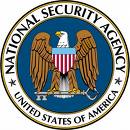NSA Busted Conducting Industrial Espionage In France, Mexico, Brazil, China and All Around the World

U.S. Conducts Industrial Espionage Globally
France’s largest English-language newspaper – The Local – reports:
Le Monde said the documents gave grounds to think the NSA targeted not only people suspected of being involved in terrorism but also high-profile individuals from the world of business or politics.***
French Prime Minister Jean-Marc Ayrault [said] “I am deeply shocked…. It’s incredible that an allied country like the United States at this point goes as far as spying on private communications that have no strategic justification, no justification on the basis of national defence,” he told journalists in Copenhagen.
Der Spiegel notes:
The NSA has been systematically eavesdropping on the Mexican government for years.
***
In the space of a single year, according to the internal documents, this operation produced 260 classified reports that allowed US politicians to conduct successful talks on political issues and to plan international investments.
The NSA was recently revealed to have been spying on Brazil’s largest oil company.
Guardian columnist Seumas Milne correctly notes:
#NSA–#GCHQ about power not security: hacked#Mexico president for political/investment edge, leak shows, like#Brazil….
The NSA was also recently busted spying on Chinese technology company Huawei.
German companies are concerned that the NSA has conducted espionage in that country. And the leaders of Latin American countries have also expressed disgust at the industrial espionage.
The NSA is also spying on the biggest financial payments systems such as VISA and Swift.
In a slide leaked by Edward Snowden, “economic” was one of the main justifications for spying.
The top U.S. spy’s justification for such financial spying is:
“We collect this information for many important reasons: for one, it could provide the United States and our allies early warning of international financial crises which could negatively impact the global economy. It also could provide insight into other countries’ economic policy or behavior which could affect global markets.”
(Top financial experts say that the NSA and other intelligence agencies are also using the information to profit from this inside information. And the NSA wants to ramp up its spying on Wall Street … to “protect” it.)
The Spying Has Been Going On For Decades
It is true that the spying is about power, and not security. Proof here, here and here.
But this has actually been going on for decades.
It has long been clear that the U.S. spying program is being used for industrial espionage. The New Statesman wrote about it in 1988. Die Zeit in 1999.
The New York Times reported in 1995:
Each morning, they gave Mickey Kantor, the United States trade representative, and his aides inside information gathered by the Central Intelligence Agency’s Tokyo station and the electronic eavesdropping equipment of the National Security Agency, sifted by C.I.A. analysts in Washington.
Mr. Kantor received descriptions of conversations among Japanese bureaucrats and auto executives from Toyota and Nissan who were pressing for a settlement, and read about the competing pressures on Japan’s Trade Minister, Ryutaro Hashimoto.
When the negotiations came to a climax in Geneva, the intelligence team was in place at the Intercontinental Hotel, working alongside Mr. Kantor’s negotiators, offering assessments of how far the Japanese side could be pressed.
***
Spying on allies for economic advantage is a crucial new assignment for the C.I.A. now that American foreign policy is focused on commercial interests abroad. President Clinton made economic intelligence a high priority of his Administration, specifically information to protect and defend American competitiveness, technology and financial security in a world where an economic crisis can spread across global markets in minutes.
***
At the Treasury Department, the trade representative’s office and the Commerce Department, officials say they now receive a torrent of information from the C.I.A.
BBC reported in 2000:
A report published by the European Parliament in February alleges that Echelon twice helped US companies gain a commercial advantage over European firms. [Here’s the report.]
Duncan Campbell, the British intelligence expert and journalist who wrote the report, raises the prospect that hundreds of US Department of Commerce “success stories”, when US companies beat off European and Japanese commercial opposition, could be attributed to the filtering powers of Echelon.
***
The European consortium Airbus lost a $6bn contract with Saudi Arabia after NSA found Airbus officials were offering kickbacks to a Saudi official.
The paper said the agency “lifted all the faxes and phone-calls between Airbus, the Saudi national airline and the Saudi Government” to gain this information.
***
The US firm Raytheon used information picked up from NSA snooping to secure a $1.4bn contract to supply a radar system to Brazil instead of France’s Thomson-CSF.
***
Former CIA director James Woolsey, in an article in March for the Wall Street Journal, acknowledged that the US did conduct economic espionage against its European allies, though he did not specify if Echelon was involved.

